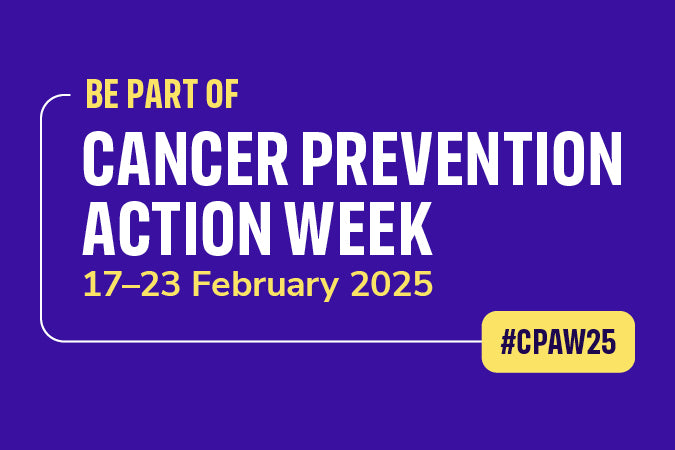Spotlight on Cancer Prevention Action Week: The Power of Early Diagnosis
Cancer Prevention Action Week is a crucial reminder that we all have a part to play in reducing cancer risk and enhancing outcomes through early detection. This week is dedicated to raising awareness and empowering individuals with actionable steps, highlighting key prevention strategies and the importance of catching cancer early.
At Check4Cancer, we are committed to advancing early detection and cancer prevention through innovative technologies and educational initiatives. In this article, we explore why early diagnosis is critical and share resources to help you take charge of your health during Cancer Prevention Action Week.
The Importance of Early Diagnosis
Early diagnosis is a fundamental aspect of effective cancer treatment. Detecting cancer at an early stage significantly boosts survival rates, broadens treatment options, and lessens the physical and emotional burden on patients and their families. According to Cancer Research UK, cancer diagnosed at stage 1 has a survival rate as high as 90%, compared to less than 20% at stage 4.
Regrettably, many cancers remain undetected until symptoms become severe, often due to a lack of awareness or delayed medical intervention. This is where education and regular screening play a vital role.
Your Cancer Prevention Action Plan
Here are some key steps you can take during Cancer Prevention Action Week:
-
Know Your Risk Factors
Understanding your personal and family medical history is essential. Some cancers, such as breast and bowel cancer, have a hereditary component. Tools like Check4Cancer’s My Cancer Risk (MCR) questionnaire provide a simple way to assess your risk and determine whether you might benefit from early screening. -
Attend Regular Screenings
Screening programmes are designed to detect cancers before symptoms appear. Whether it’s a mammogram, a skin check, or bowel cancer screening, staying up to date with recommended screenings can save lives. -
Adopt Healthy Lifestyle Habits
Lifestyle changes such as quitting smoking, maintaining a healthy weight, and increasing physical activity significantly reduce the risk of certain cancers. Your diet also plays a key role; aim to include more fruits, vegetables, and whole grains in your meals and avoid too many ultra-processed foods. -
Stay Informed
Cancer Prevention Action Week is an excellent time to learn more about early signs and symptoms. Persistent changes in bowel habits, unexplained weight loss, or unusual skin changes should prompt medical attention.
Promoting Awareness
Cancer Prevention Action Week is about taking steps to protect your health and encouraging others to do the same. Here are some simple ways to participate:
- Personal stories about early detection and successful treatment can be powerful motivators for others. Use your social media platforms to raise awareness.
- Share articles, graphics, or Check4Cancer’s resources using the hashtag #CancerPreventionActionWeek.
Cancer Prevention Action Week is a valuable opportunity to focus on reducing cancer risk and improving early detection. By taking proactive steps, spreading awareness, and utilising resources like those offered by Check4Cancer, we can work together to make a meaningful impact.

Professor Gordon Wishart
Chief Medical Officer
Professor Gordon Wishart is the founder, Chief Medical Officer and CEO of Check4Cancer, a leading early cancer detection and cancer prevention company. In 2016 Check4Cancer launched rapid access, streamlined and audited diagnostic pathways for breast and skin cancer to the insured and self-pay markets, leading to the award of “Diagnostic Provider of the Year” at the annual Health Investor Awards in 2018. In late 2017, Check4Cancer launched the first worldwide breast cancer risk test (MyBreastRisk) to combine genetic, family history and lifestyle risk factors to underpin a risk-stratified breast screening programme. As the former Director of the Cambridge Breast Unit from 2005-2010, and current Professor of Cancer Surgery at Anglia Ruskin School of Medicine since 2008, he has a strong track record in clinical research and modernisation of cancer diagnosis and treatment, with more than 100 peer-reviewed papers in scientific journals. In 2010 he led a team of clinicians and scientists that developed the PREDICT breast cancer treatment and survival model, now used worldwide.
Find out moreKnowledge and support
Go to all articles
PODCAST: Why employers can’t ignore cancer screening
Cancer screening is increasingly recognised as a critical workforce issue, as rising incidence rates and stretched NHS diagnostic capacity place...
Read more
Check4Cancer & Early Labs launch a partnership to offer urine-based early cancer detection tests
“Our partnership with EARLY Labs provides an opportunity to develop an early cancer detection test for 2-3 common cancers, based...
Read more
Leading the Way in Cancer Risk Stratification and Screening
From advanced screening techniques to innovative risk stratification tools, here's how we are actively shaping the future of cancer care.
Read more